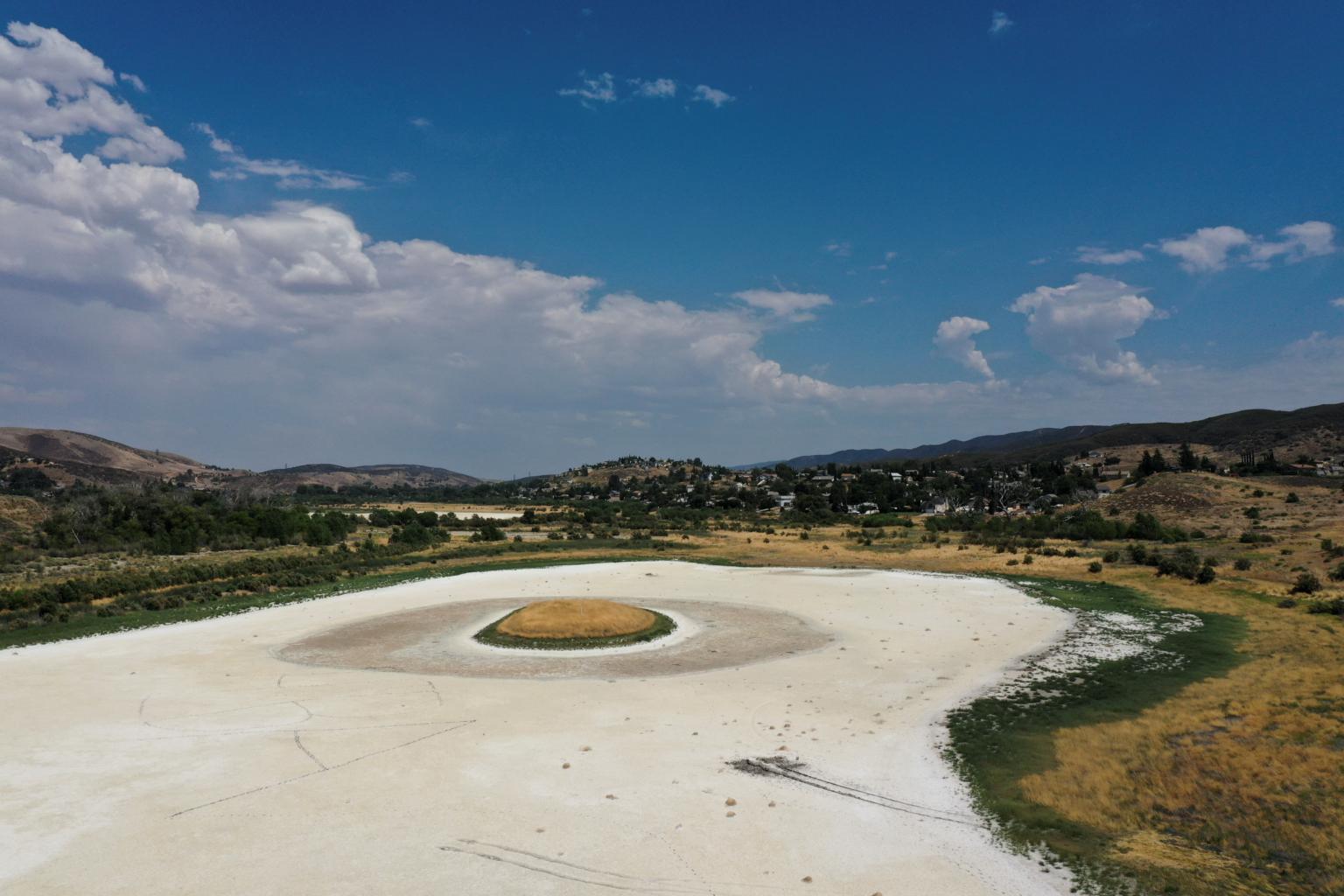Against expectations, US south-western summers are getting even drier
Sign up now: Get ST's newsletters delivered to your inbox

An aerial view of Elizabeth Lake, that has been dried up for several years, amid extreme heat and drought conditions in the region, in Los Angeles County, California.
PHOTO: REUTERS
NEW YORK (NYTIMES) - The US South-west, already the driest region in the United States, has become even drier since the mid-20th century, particularly on the hottest days, according to new research.
Humidity has declined in summers over the past seven decades, the research showed, and the declines have accelerated since 2000, a period of persistent drought in the region.
Extreme heat coupled with lower humidity increases wildfire risk, said Dr Karen McKinnon, a climate scientist at the University of California, Los Angeles, and lead author of a paper in Nature Climate Change describing the research and findings.
"High temperature, low humidity days help desiccate the vegetation," she said. "And the fire weather itself is worse."
The region and other parts of the West have experienced more severe fires and longer wildfire seasons as the climate has warmed.
The findings from the study run counter to a basic idea about climate change - that as the world warms from human-caused emissions of greenhouse gases, humidity will increase because warmer air holds more moisture. While that may hold globally, the study shows that there can be regions where the opposite is true.
In most of the world, evaporation from the ocean is responsible for the majority of the humidity. "The ocean is an amazing source of moisture," Dr McKinnon said.
But in the South-west, they found, soil moisture was the dominant source. "What we're seeing in the South-west on these hot days is that the source of moisture is not the ocean but rather the land surface," she said.
Soil moisture gets lower in the summer, and as temperatures rise it gets even lower. "You just don't have the water to evaporate," Dr McKinnon said. As a result, the air is drier.
Dr Park Williams, a climate scientist at the University of California, Los Angeles who has studied declining humidity in the South-west, said Dr McKinnon's study "solves a question that has been lurking".
"This paper shows it is a pretty straightforward effect of drier soils," he said.
Lower soil moisture should also cause temperatures to rise, Dr Williams said, because there is little or no moisture left to evaporate, and evaporation has a cooling effect.
"Oftentimes, we see the most intense heat waves occurring over dry soils," he said. "This year the summer soil moistures are dismally low. The dice are loaded for extremely intense heat waves."


